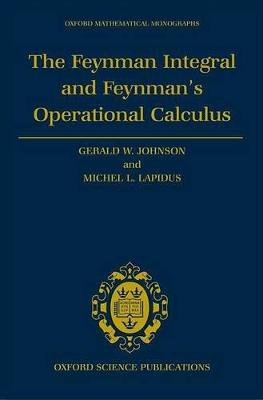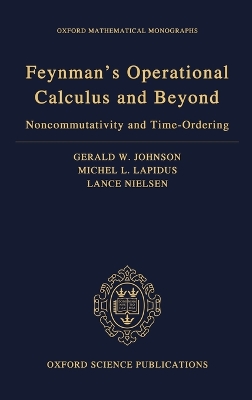Oxford Mathematical Monographs
2 total works
The Feynman Integral and Feynman's Operational Calculus
by Gerald W. Johnson and Michel L. Lapidus
Published 1 July 2000
This text aims to make accessible to mathematicians, physicists and other scientists interested in quantum theory, the beautiful but mathematically difficult subjects of the Feynman integral and Feynman's operational calculus. Some advantages of the approaches to the Feynman integral which are treated in detail in this book are the following: the existence of the Feynman integral is established for very general potentials in all four cases; under more restrictive but still broad conditions, three of these Feynman integrals agree with one another and with the unitary group from the usual approach to quantum dynamics; these same three Feynman integrals possess pleasant stability properties. Much of the material covered has been previously available only in the research literature, and the book also contains some new results. The background material in mathematics and physics that motivates the study of the Feynman integral and Feynman's operational calculus is discussed, and detailed proofs are provided for the central results.
Feynman's Operational Calculus and Beyond
by Gerald W. Johnson, Michel L. Lapidus, and Lance Nielsen
Published 6 August 2015
This book is aimed at providing a coherent, essentially self-contained, rigorous and comprehensive abstract theory of Feynman's operational calculus for noncommuting operators. Although it is inspired by Feynman's original heuristic suggestions and time-ordering rules in his seminal 1951 paper An operator calculus having applications in quantum electrodynamics, as will be made abundantly clear in the introduction (Chapter 1) and elsewhere in the text, the theory
developed in this book also goes well beyond them in a number of directions which were not anticipated in Feynman's work. Hence, the second part of the main title of this book.
The basic properties of the operational calculus are developed and certain algebraic and analytic properties of the operational calculus are explored. Also, the operational calculus will be seen to possess some pleasant stability properties. Furthermore, an evolution equation and a generalized integral equation obeyed by the operational calculus are discussed and connections with certain analytic Feynman integrals are noted.
This volume is essentially self-contained and we only assume that the reader has a reasonable, graduate level, background in analysis, measure theory and functional analysis or operator theory. Much of the necessary remaining background is supplied in the text itself.
developed in this book also goes well beyond them in a number of directions which were not anticipated in Feynman's work. Hence, the second part of the main title of this book.
The basic properties of the operational calculus are developed and certain algebraic and analytic properties of the operational calculus are explored. Also, the operational calculus will be seen to possess some pleasant stability properties. Furthermore, an evolution equation and a generalized integral equation obeyed by the operational calculus are discussed and connections with certain analytic Feynman integrals are noted.
This volume is essentially self-contained and we only assume that the reader has a reasonable, graduate level, background in analysis, measure theory and functional analysis or operator theory. Much of the necessary remaining background is supplied in the text itself.

